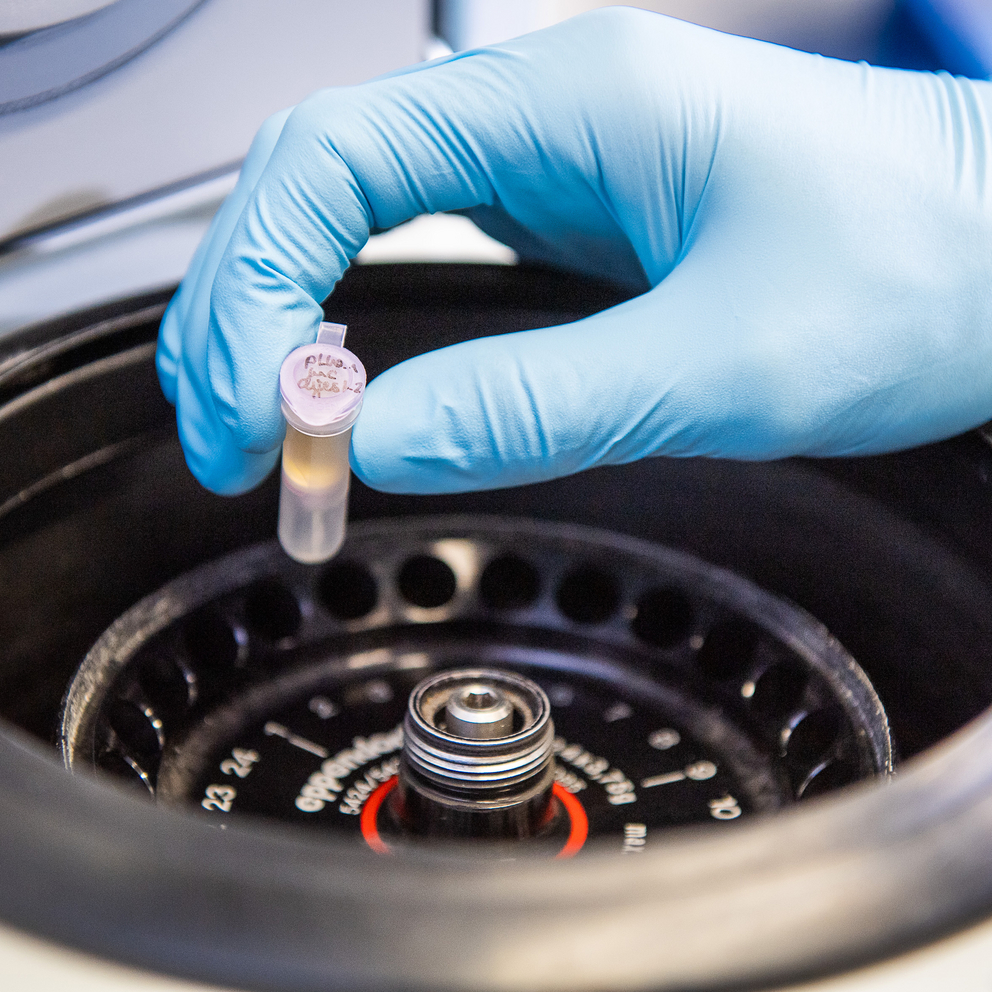Arming the body's own immune cells against cancer in the laboratory: this is the principle behind the so-called CAR-T cell therapy, which is already being used very successfully for certain treatment-resistant forms of cancer, such as acute lymphoblastic leukemia. However, in some patients, the cancer recurs because the CAR-T cells are exhausted over time. Scientists at the Medical Faculty of the University of Freiburg, together with Australian colleagues, have now shown in an animal model that the already approved drug azacitidine strongly reduces T-cell exhaustion and the risk of leukemia relapse. In addition, azacitidine administration improves CAR T-cell recognition of Acute myeloid leukemia cells by upregulation of CD123. The experimental work in the laboratory of Prof Zeiser was mainly done by Dr. Nadia El Khawanky. The study appeared Nov. 10, 2021, in the online journal Nature Communications.


Combination treatment for safe gene therapy against cancer
CIBSS researchers have strengthened the effect of a novel CAR-T cell therapy in leukemia: this could reduce the risk of cancer recurrence

"The combination treatment we developed could be an important step toward helping many more cancer patients with CAR-T cell therapy," says Prof. Dr. Robert Zeiser
"The combination treatment we have developed could be an important step towards helping many more cancer patients with CAR-T cell therapy," says Prof. Dr. Robert Zeiser, Head of the Division of Tumor Immunology and Immunoregulation in the Department of Internal Medicine I (Medical Director: Prof. Dr. Justus Duyster) at the University Medical Center Freiburg, leading the German-Australian research team together with Prof Yong from Adelaide. He is a member of the Cluster of Excellence CIBSS - Centre for Integrative Biological Signalling Studies at the University of Freiburg.
In particular, the scientists were able to show that the recurrence of acute myeloid leukemia (AML) could be effectively prevented after CAR-T cell therapy. The drug used has an epigenetic effect: it removes reading markers from the genetic material of the cells and thus ensures increased activation of certain genes. As a result of the treatment, the cancer cells produced more of a certain surface protein, which in turn made them better recognized by the CAR-T cells. "The cancer cells are stripped of their cloak, so to speak, and they become visible to the immune system," Zeiser said. Further studies must now clarify whether the approach is also safe and effective in humans.
In his project at CIBSS, Zeiser is investigating the connection between metabolites and how cancer cells escape the immune system. Again, his goal is to improve various T-cell-based immunotherapies against cancer thanks to signaling research: https://www.cibss.uni-freiburg.de/de/research/project/projects-details/zeiser-c8
Original publication: El Khawanky, N., Hughes, A., Yu, W. et al. Demethylating therapy increases anti-CD123 CAR T cell cytotoxicity against acute myeloid leukemia. Nat Commun 12, 6436 (2021). doi.org/10.1038/s41467-021-26683-0
https://www.nature.com/articles/s41467-021-26683-0
Originally published at: https://www.uniklinik-freiburg.de/presse/pressemitteilungen/detailansicht/2680-kombi-behandlung-fuer-sichere-gentherapie-gegen-krebs.html



